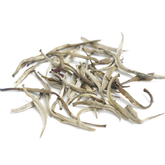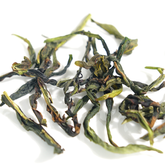What Tea Is Good For A Upset Stomach?| NPTEA
16 Oct 2024
0 comments
Tea and Its Effect on the Stomach
Unfortunately, tea can cause stomach irritation for some individuals. This is primarily due to key compounds found in tea. First, tea polyphenols, especially catechins in unfermented teas like green and white tea, are potent astringents. These compounds can irritate the stomach lining and increase acid production, leading to discomfort or a burning sensation, particularly when consumed on an empty stomach. For example, teas from China’s Yunnan province, such as raw Pu'er tea, contain higher levels of polyphenols. People with sensitive stomachs may experience noticeable discomfort when drinking such teas on an empty stomach, making it essential to avoid this habit to prevent gastrointestinal issues.

Secondly, caffeine in tea is another significant factor. Although tea contains less caffeine than coffee, it can still stimulate acid production in the stomach. Excessive caffeine intake may cause acid reflux or indigestion, especially in individuals with sensitive stomachs. For this reason, people with stomach problems should avoid drinking overly strong tea and opt for milder brews. Tea also contains theobromine, an alkaloid similar to caffeine, which can accelerate gut movement. In individuals with weak digestion, theobromine may trigger diarrhea or discomfort.
What Tea is Best for People with Sensitive Stomachs?
People with sensitive stomachs should stick to lighter teas and avoid drinking overly strong brews, especially on an empty stomach. It’s also best to choose teas that are more fermented, such as black tea and ripe Pu'er tea, as these varieties have lower levels of caffeine and polyphenols, making them gentler on the stomach. On the other hand, teas like green and white tea, which are lightly fermented, may cause more irritation. Below are some recommended teas and their benefits:
- Black Tea
Black tea is a fully fermented tea with oxidized polyphenols, which reduces its astringency and makes it gentler on the stomach. Black tea also has a warm nature, making it ideal for people with sensitive digestive systems. Drinking it after meals can promote digestion and ease discomfort. Popular Chinese black teas include Keemun, Yunnan Black, and Lapsang Souchong.
- Ripe Pu'er Tea
Ripe Pu'er tea undergoes a post-fermentation process, which makes it mild and beneficial for digestive health. It not only avoids irritating the stomach but also helps regulate digestive function. Ripe Pu'er tea is often considered effective in aiding digestion and reducing the sensation of heaviness after eating greasy foods, making it an excellent choice for those with sensitive stomachs.
- Dark Tea (Hei Cha)
Dark tea, another post-fermented variety, has gentle properties and is less likely to irritate the stomach. It can help improve digestion and maintain gut health. Aged dark tea, in particular, has a more stable nature and is even milder on the stomach, making it suitable for long-term consumption.

Conclusion
While most teas can irritate the stomach to some extent, people with sensitive stomachs should avoid drinking strong brews and lightly fermented teas such as green tea and white tea. Instead, opt for more fermented varieties like black tea and dark tea, which are milder and easier on the stomach. Always avoid drinking tea on an empty stomach to prevent gastrointestinal discomfort.
SEE MORE CHINESE TEAS
If you have questions about selecting tea:
Learn-more-about-chinese-tea
If you have questions about the benefits of tea:
Health-benefits-of-chinese-tea
If you have questions about brewing tea:
How-to-brew-loose-leaf-tea
Tags:






